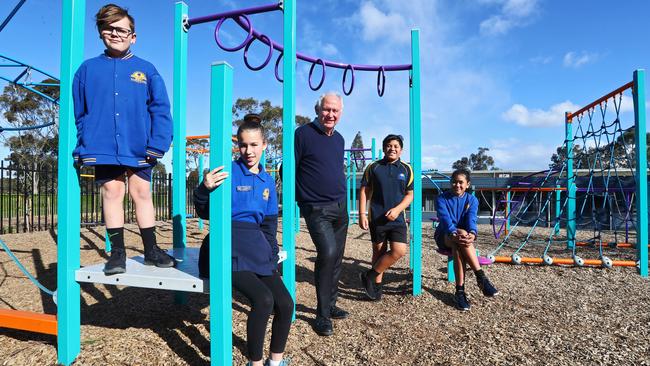NAPLAN writing skills in reverse, no improvement in 12 test areas
Writing skills among Australian primary and secondary students have fallen to their lowest levels since nationwide testing began.

Writing skills among Australian primary and secondary students have fallen to their lowest levels since nationwide testing began, prompting at least one jurisdiction to call for an inquiry.
Preliminary data from the latest National Assessment Program — Literacy and Numeracy, known as NAPLAN, has revealed some areas of improvement, such as in Years 5 and 9 numeracy and primary-level reading. However, there has been no statistically significant gains in 12 of the 20 tested domains across various year levels in the 11 years since the NAPLAN test was introduced.
The results are expected to factor into funding negotiations between incoming education minister Dan Tehan and his state and territory counterparts, with the commonwealth having pledged billions of dollars in additional school funding on the caveat that spending is tied to evidence-based reforms to boost educational outcomes.
This year’s NAPLAN, which for the first time had 20 per cent of tests undertaken online, has come under fire from the teachers’ union, which has deemed the results “invalid” due to concerns about comparing modes of testing. The NSW Teachers Federation yesterday released a highly critical report by US academic Les Perelman, who said it was unprecedented for a national assessment program to have some students’ test online, with questions adapted to their performance, and others sitting pen-and-paper tests.
Dr Perelman, who had previously been commissioned by the federation to critique NAPLAN, claimed the design and execution of the 2018 test were “so flawed” that results “should be discarded”.
The Australian Curriculum, Assessment and Reporting Authority, which conducts NAPLAN, dismissed the claims, with a spokesman pointing out that Dr Perelman had not requested official data to inform his review.
ACARA executive director Robert Randall said the data had been signed off by independent experts, which had confirmed that the online and paper tests had assessed the same content and could be reliably compared.
Mr Randall also confirmed that the states and territories had their own experts review the data, and they reported that they were satisfied with the comparability.
There was one testing domain, Year 9 writing, in which those who sat the online test recorded, on average, higher results than students who completed the writing test on paper.
Mr Randall said that despite this the independent experts confirmed the results were comparable, with the difference possibly “due to students at this year level having greater confidence writing online than on paper”.
More broadly, results in the writing component of NAPLAN have been an increasing concern over recent years. The latest results confirm that the decline has continued. Since 2011, when the current writing test was introduced, average scores for Years 5, 7 and 9 have fallen about 4 per cent nationwide.
The decline in Victoria was not as severe as in other states, however Education Minister James Merlino said they warranted investigation. Victoria outperformed many other states across several categories, reporting its highest average scores in Years 3, 5 and 9 reading and Years 5 and 9 numeracy.
Outgoing education minister Simon Birmingham dismissed criticism of the online tests, which will continue to be rolled out ahead of full adoption in 2020, as “unnecessary scaremongering”.
Cranbourne West Primary School, in Melbourne’s southeast, has not yet transitioned to online testing and principal Andrew Bergmeier conceded he was apprehensive. “If we went to online NAPLAN tests, we would have to spend 12 months on keyboarding lessons so the children could answer the questions in the right amount of time,” he said. The school has used previous NAPLAN results to focus its teaching on areas where students had struggled, such as being better able to comprehend texts.
Additional Reporting: Richard Ferguson


